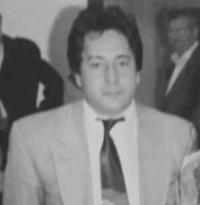Life ought to be colorful; I was mostly influenced by music
Viktor Salinas was born in 1941 in the village of Dolná Seč in Slovakia into a Vlax Roma family. From his early years, he recalls the German-Russian battle of the Hron river which led to the destruction of his family house. A year after the end of WW II., his father was shot dead by drunken policemen. He grew up with his mother and two siblings. In 1958 he moved to Czechia to work in the Karosa factory. In the 1960s he began playing the trumpet in the Tuláci band and he made a living as a musician for many years to come. At that time, he also got married and had eight children. In the 1980s he found exile in Austria and later lived in Germany, Belgium and Sweden. He returned to Czechoslovakia after 1989, settling in Prague. A few years later he moved back to Slovakia where he established the Independent Vlax Roma Party. Later, he lived in Austria and Czechia again, as well as in the US, Canada, Belgium and Great Britain.


